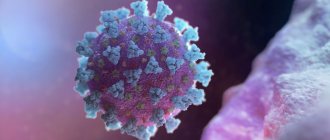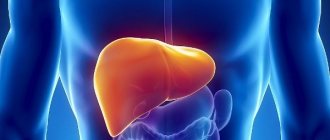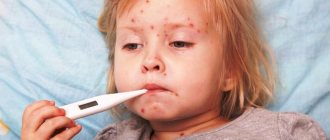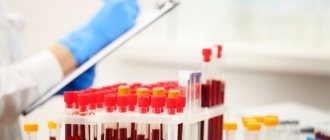Antibodies to cyclic citrullinated peptide are the main marker of rheumatoid polyarthritis in the early stages. Rheumatoid arthritis (RA) is a systemic disease characterized by predominant damage to the joints and quickly leading to disability if not diagnosed in a timely manner. As a result of disruption of the immune system, the body produces antibodies to the body's own cells and tissues, including proteins of the inflamed joint membrane containing citrulline. Immune complexes lead to joint damage (destruction and erosion). First of all, the small joints of the hands, feet, wrists and ankles, as well as the elbow and knee joints are affected; their damage is often symmetrical. In severe cases, other organs and tissues are involved.
Clinically, RA is manifested by pain in the joints, swelling and deformation, redness in the joint area, increased local and general temperature, and impaired motor activity. The hallmark symptom of rheumatoid arthritis is morning stiffness. If it lasts for a long time, there is a disturbance in movement in the joint up to complete immobility.
When RA is suspected, rheumatoid factor (RF) and C-reactive protein (CRP) are routine diagnostic tests. But these tests are not always informative; the levels of these indicators also increase in other autoimmune diseases.
The production of antibodies to cyclic citrullinated peptide begins 1–2 years before clinical manifestations and is characteristic primarily of RA, so ASCP is a highly informative and accurate test for diagnosing rheumatoid arthritis, allowing not only to make an early diagnosis and prescribe timely treatment, but also to differentiate between erosive and non-erosive arthritis. form of the disease. A high level of ASCP is associated with an erosive form that is more aggressive in its course, but it is not informative in assessing the effectiveness of treatment. To diagnose rapidly progressing forms of rheumatoid arthritis, an additional marker is used - antibodies to citrullinated vimentin (anti-MCV), which allows monitoring of therapy.
What is citrulline
Citrulline is a common metabolite found throughout the body; it is a non-standard amino acid because it cannot be integrated into protein during protein synthesis.
Citrulline-containing proteins can only be formed through post-translational modification of arginine residues, a reaction catalyzed by peptidyl arginine deiminase. Citrullination is the process by which citrulline-containing proteins are formed. The citrullination reaction has received increased attention from rheumatologists because autoantibodies directed against citrulline-containing proteins are detected in patients with rheumatoid arthritis (RA).
Physiological role
The process of citrullination is observed during natural physiological and pathological processes in the human body and plays a role in the processes of cell differentiation and apoptosis.
Citrullinated antigens of synovial tissues include: citrullinated vimentin, citrullinated filaggrin, citrullinated α- and β-chains of fibrin, citrullinated peptides that are part of type I and II collagens. During the development of methods for determining antibodies to citrullinated antigens, it was shown that the use of synthetic cyclic forms of citrullinated peptides provides greater sensitivity of the test. Antibodies to cyclic citrullinated peptide are currently recognized as an informative serological marker of RA.
Cyclic citrullinated peptide antibodies
The ACCP test is one of the newest methods for diagnosing and analyzing the course of rheumatoid arthritis. To diagnose the disease, doctors at the Yusupov Hospital determine the concentration of two antibodies in the body: ACCP (cyclic citrullinated peptide antibodies) and RF (rheumatoid factor). Analysis of ACCP for rheumatoid arthritis gives an accurate result. Decoding the test allows you to determine the pathological process at an early stage. Rheumatoid factor is quite specific. Its reliability is determined largely by the duration of the disease.
Determining ACCP in rheumatoid arthritis in 70% of patients allows us to identify the disease at the initial stage, in the absence of visible symptoms. The analysis reveals the stage of disease progression in 79% of cases. The accuracy of the results is 98%. The study predicts how the disease will develop. This provides an opportunity to start and carry out adequate therapy in a timely manner.
Clinical relevance
Rheumatoid arthritis is a common systemic autoimmune disease that affects approximately 0.5-1% of the population. This disease causes progressive destruction and deformation of joints and may have extra-articular manifestations. Early diagnosis and appropriate treatment of rheumatoid arthritis are critical to disease outcomes. Traditional tests for the serological diagnosis of RA include the determination of rheumatoid factor (RF).
However, the definition of the Russian Federation has two significant limitations. First, the specificity of this test for RA is quite low: RF is detected in approximately 5% of healthy people, 5-25% of elderly people, and also in a significant number of patients with chronic diseases. Thus, classic IgM-RF is detected in 30-35% of patients with systemic lupus erythematosus and systemic scleroderma, 20% of patients with dermatomyositis, polyarteritis nodosa and ankylosing spondylitis, 10-15% of patients with psoriatic arthritis, Reiter's disease, syphilis, tuberculosis, sarcoidosis , chronic active hepatitis. In the presence of articular syndrome, 25-50% of patients with infective endocarditis are IgM-RF positive, 45-70% with primary biliary cirrhosis, 20-75% with hepatitis B or C, 15-65% with other viral infections , 5-25% - with tumors. Secondly, the presence of the Russian Federation is not stable. The frequency of detection of RF significantly depends on the duration of the disease: in the first 6 months it is detected only in 15-43% of RA patients; subsequently, some RF-negative patients become RF-positive. Under the influence of treatment, reverse transformation is also possible.
In 2007, the European League Against Rheumatism (EULAR) published guidelines for the diagnosis of early RA, and the detection of autoantibodies against CCP was classified as a serological marker.
These autoantibodies can appear in the blood serum 1 year before the onset of the disease, and their occurrence in the onset of RA is 40-50%, which is significantly higher than the occurrence of RF, which does not exceed 10-15% at the onset of the disease. It is precisely due to the high incidence in the onset of RA, as well as specificity close to 95% (versus 70% for the Russian Federation), that the determination of anti-CCP has become the gold standard for diagnosing early RA. In most cases, immunological confirmation of the clinical diagnosis of the onset of RA becomes the basis for early treatment and preservation of joint function in patients with this serious disease.
In addition, the test allows you to differentiate between erosive and non-erosive forms of RA. Anti-CCP positive patients show a greater degree of cartilage damage compared to anti-CCP negative patients. The prognostic value of the method increases if it is used in combination with RF.
This test allows you to differentiate RA from other connective tissue diseases. Anti-CCP can be detected in 30% of cases of seronegative rheumatoid arthritis (RF negative). The feasibility of using this test in the early diagnosis of arthritis and for the purpose of prognosis of recently developed RA has been demonstrated (anti-CCP are more associated with progression and erosive arthritis than RF).
The use of anti-CCP for monitoring the activity of the process is not recommended (no correlation with activity markers, including ESR, CRP, has been identified). Large clinical studies have found that anti-CCP antibody levels remain stable for at least the first 3 to 5 years of rheumatoid arthritis.
The presence of antibodies to cyclic citrullinated peptide at the time of diagnosis predicts a more aggressive course of the disease and more pronounced radiographic progression, despite therapy. Subsequent fluctuations in the level of these antibodies do not reflect changes in disease activity.
Neither NSAIDs, nor glucocorticosteroids, nor most basic drugs affect the level of anti-CCP, which allows us to conclude that this test is not suitable for monitoring the effectiveness of treatment, since the use of most basic and symptomatic drugs does not significantly reduce the level of antibodies.
The need for early diagnosis
Rheumatoid arthritis is the most common chronic autoimmune disease, which is expressed by inflammation in the joints and the development of degenerative-dystrophic changes in them, and extra-articular manifestations of the disease. When joint tissue is damaged, the patient experiences the following symptoms:
- Joint pain;
- Swelling and redness of the skin in the area of the diseased joint;
- Movement restrictions;
- Impaired limb function;
- Morning stiffness.
As the disease progresses, inflammation of the joint progresses. This leads to the development of deformities and limitation of movement. At an early stage of the pathological process, there is a need for differential diagnosis of the disease. The rheumatologist pays attention to the typical symptoms of arthritis, the development of inflammatory joint damage, rheumatoid factor and the presence of ACCP. Early diagnosis of rheumatoid arthritis allows you to prescribe optimal treatment and prevent joint destruction. Severe cases of the disease are discussed at a meeting of the Expert Council of the Yusupov Hospital. Professors and doctors of the highest category take part in its work. Leading rheumatologists collectively develop patient management tactics.
Interpretation of the result
Increasing values:
- Rheumatoid arthritis (clinical sensitivity - 70.6%, overall specificity - 98.2%).
- In some cases of other connective tissue diseases, especially SLE (systemic lupus erythematosus).
Material studied: blood serum.
Determination method: immunochemiluminescent, Abbot Architect 2000i.
Temperature conditions for storage and transportation:
| Whole blood | EDTA plasma | |
| 18-25°C | 22 hours | 22 hours |
| 2-8°C | — | 7 days |
| -20°C | — | 3 months |
No special preparation is required for the study.
How is the analysis carried out?
ACCP is determined in blood serum. There is no need for special preparation for ACDC analysis. Blood is taken on an empty stomach, so at least eight hours (preferably 12 hours) must pass between the last meal and the test. The patient is allowed to drink only water. Juice, coffee, tea should not be consumed.
Blood for ACCP analysis is taken from a vein. Blood serum is used for testing. To do this, the blood is centrifuged. The resulting whey is stored for one week at a temperature from +2 to +8°C. The study is carried out in vitro. To carry out the analysis, the method of scattering a laser beam in a liquid medium is used.
Where can I get a blood test for ACCP? In order to perform the study at an affordable price, call the Yusupov Hospital. Contact center specialists will make an appointment with a rheumatologist at a time convenient for you. After the initial examination, the doctor will prescribe the necessary tests, including a blood test for ARPC.
Bibliography
- S. V. Lapin, A. A. Totolyan. Antibodies to citrullinated antigens.// Laboratory diagnosis of autoimmune diseases. Magazine “Terra Medica nova” No. 3 (15) 2007.
- Lapin S.V., Maslyansky A.L., Ilivanova E.P., Mazurov V.I., Totolyan A.A. Clinical significance of antibodies to cyclic citrullated peptide in early rheumatoid arthritis. // Medical Immunology. 2004, T. 6, No. 1-2, pp. 57-66.
- ABOUT. Yaremenko, A.M. Mikitenko. Diagnosis of rheumatoid arthritis in the early stages. //Department of Hospital Therapy No. 1 of the National Medical University. A.A. Bogomolets, Kyiv.
- Alessandri C., Bombardieri M., Papa N. et al. Decrease of anti-cyclic citrullinated peptide antibodies and rheumatoid factor following anti-TNFa therapy (infliximab) in rheumatoid arthritis is associated with clinical improvement // Ann. Rheum. Dis. - 2004. - Vol. 63. - P. 1218-1221.
- American College of Rheumatology Subcommittee on Rheumatoid Arthritis Guidelines. (2002) Guidelines for the management of rheumatoid arthritis. 2002 Update // Arthritis Rheum. - 2002. - Vol. 46. - P. 328-346.
- Bobbio-Pallavicini F., Alpini C., Caporali R. et al. Autoantibody profile in rheumatoid arthritis during long-term infliximab treatment // Arthritis Res. Ther. - 2004. - Vol. 6. - P. R264-R272.
- Chen HA, Lin KC, Chen CH et al. The effect of etanercept on anti-cyclic citrullinated peptide antibodies and rheumatois factor in patients with rheumatoid arthritis // Ann. Rheum. Dis. - 2006. - Vol. 65. - P. 35-39.
- De Rycke L., Verhelst X., Kruithof E. et al. Rheumatoid factor, but not anti-citrullinated protein antibodies, is modulated by infliximab treatment in rheumatoid arthritis // Ann. Rheum. Dis. - 2005. - Vol. 64. - P. 299-302.
- De Vries-Bouwstra JK, Goekoop-Ruiterman YPM, Van Zeben D. et al. A comparison of clinical and radiological out-comes of four treatment strategies for early rheumatoid arthritis: results of the BEST trial // Ann. Rheum. Dis. - 2004. - Vol. 63 (suppl. 1). - P. 58.
- Emery P., Breedveld F.C., Dougados M. et al. Early referral recommendation for newly diagnosed rheumatoid arthritis: evidence based development of a clinical guide // Ann. Rheum. Dis. - 2002. - Vol. 61. - P. 290-297.
- Combe B., Landewe R., Lukas C., et al. EULAR recommendations for the management of early arthritis: report of task force of the European Standing Committee for international Clinical Studies including Therapeutics (ESCISIT). // Ann Rheum Dis 2007; 66; 34-45.
Author:
Baktyshev Alexey Ilyich, General Practitioner (family doctor), Ultrasound Doctor, Chief Physician









